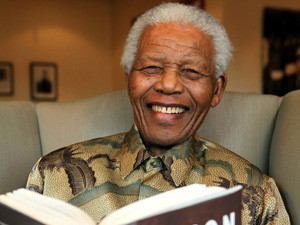
Former president Nelson Mandela was one of the first recipients of the smart ID card that was officially launched at the Union Buildings in Pretoria this morning.
The smart ID card was launched with a symbolic handover of Madiba's ID card to his daughter, Zindzi Mandela, as South Africa's first democratically-elected president remains in hospital.
Other first recipients of the smart ID card include Jacob Zuma, Kgalema Motlanthe, Thabo Mbeki, FW de Klerk, archbishop emeritus Desmond Tutu, Winnie Madikizela Mandela, Sophie de Bruyn, Ahmed Kathrada, Andrew Mlangeni, Denis Goldberg and Frene Ginwala.
According to a statement released by the Department of Home Affairs (DHA), the first batch of smart ID cards will be delivered to senior leaders in and outside of government, as well as senior citizens with ages ranging between 80 and 90 years, as part of Nelson Mandela Day celebrations.
DHA minister Naledi Pandor says the new smart ID card is part of efforts by government "to consolidate the restoration of national identity, citizenship and dignity that was denied to the majority of South Africans by successive racist regimes".
Roll-out to the general public will continue from today with first-time identity document applicants and senior citizens. Thereafter, South Africans will be invited to DHA offices in stages according to dates of birth.
Pandor has said it will take six to eight years to complete the roll-out of the cards, and the DHA is expanding the department's number of offices able to process smart ID applications.
It is hoped the microchip technology in the new cards will cut down on identity fraud, with the DHA saying the cards will be "almost impossible to fabricate".
Physical security features on the card body include holograms, laser engraving and personal details, which will provide visual verification of the card and easily identify tampered cards. Logical security features include fingerprint biometrics and biographic data which is embedded on the 80Kb card chip.
Share